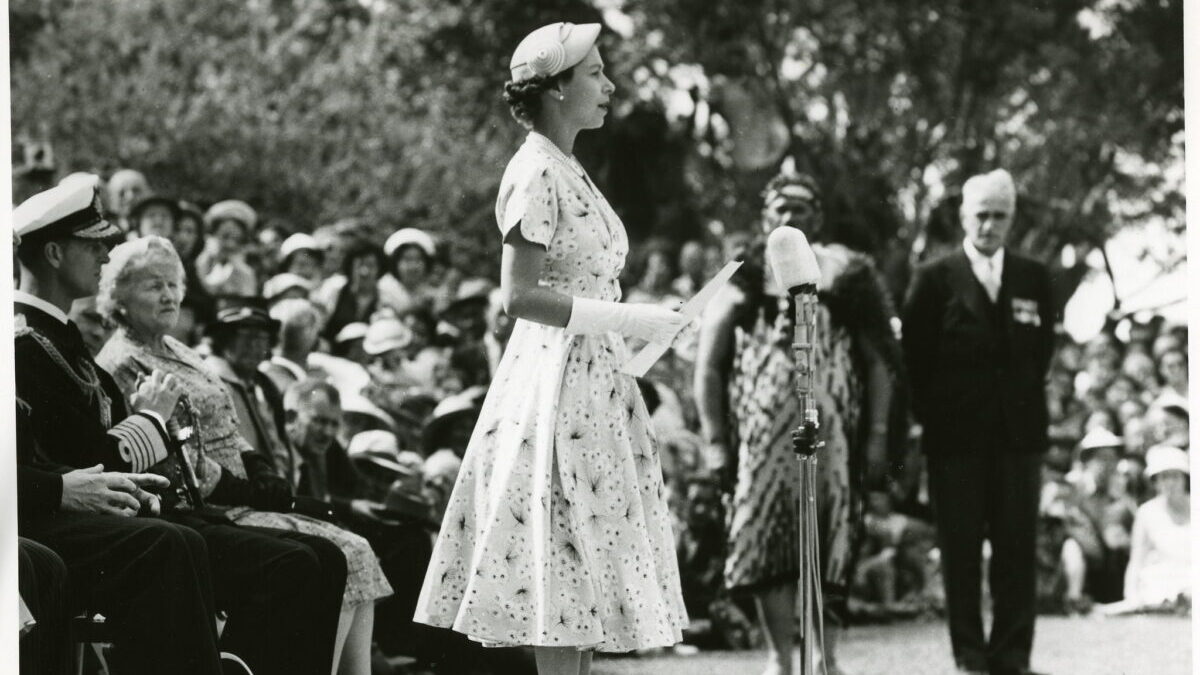Hong Kong and Singapore; India and Pakistan; Egypt and South Africa; Australia and New Zealand; Canada and the United States.
These far-flung countries are all the powerhouses of their regions of the world, both politically and economically.
They have histories of law, order, and general liberty that, though certainly troubled and far from perfect, tower above those of their neighbors.
Finally: They were all once major colonies of the British Empire.
European empire had many exports. Some were ugly, including death and war (though European colonialism didn’t invent these things and was far from the first to introduce them).
Others, however, were beautiful. When the Spanish Empire collapsed 200 years ago, for example, it left lands more Catholic than even Spain itself. And as the British Empire receded in the years following its heroic struggle to defeat the Nazis and the Imperial Japanese, it left all around the globe strong and durable native institutions built in the British model.
Because where the British went, tribal justice was replaced with written law. One famous story from the Raj recalls Hindu priests complaining to a British officer that his soldiers wouldn’t let them burn a dead man’s widow on his funeral pyre, per local custom.
“My nation also has a custom,” the Gen. Charles James Napier answered. “When men burn women alive we hang them, and confiscate all their property.”
Far from anecdotal, where the British ruled, slavery was eventually abolished, literacy rates improved, railroads were built, and elites were educated at universities. Theirs is a legacy that stands far apart from the barbarous Dutch, or murderous French — and the states the British left behind testify to this truth every day.
Queen Elizabeth II, of course, had little to do with this impressive history. She ascended to the throne just 70 years ago — as the empire was winding down in every respect. That didn’t stop the enemies of civilization from attacking her, of course.
Carnegie Mellon “blackness in multilingualism” professor Uju Anya wished “excruciating” pain on the queen in her final hours, accusing her of genocide and rape. In her own defense, the “antiracist, feminist” professor claimed the queen killed half her family — a good reason to be angry, were the claim not preposterous.
While Anya’s parents met at a university they were studying at in wicked England, “The View’s” Sunny Hostin was born to a Puerto Rican mother and a black American father in New York City. That did not stop her, however, from demanding reparations from the deceased British queen — or claiming the rocks in the Crown Jewels actually belong to black people.
Ithaca, New York-raised Harvard professor Maya Jasanoff, for her part, merely complained the queen was “a white face on all the coins.” Staggering.
Many who actually lived in and understood the former colonies were, of course, less likely to blame the queen for their troubles. Regardless of facts, however, apparent-historian Michael Harriot says attacking the queen in the days following her death “is not just OK, it’s actually an important cultural contribution.”
Why? Because the attacks serve the ends of “Critical Race Theory,” Harriot writes. Oh, and also because America had slaves.
The historical illiteracy is impressive, even for a bunch of hate-filled activists. But these professors and historians and activists don’t simply hate a woman who’s passed on: They deeply and viciously hate Queen Elizabeth II — a person they’ve never met and who, to much of the world, symbolized grace, dignity, and poise in the face of dramatic world events.
Where does this level of vitriol come from? It stems from the reality that the queen was one of our final connections to a Western Civilization that believed in itself — a civilization her critics wish to destroy.
When Queen Elizabeth II was first crowned, the prime minister was Sir Winston Churchill — a lion of the British Empire, defender of Europe, and ferocious enemy of Communism, Naziism, and any other ideology that would threaten our civilization.
She came from a time when patriotism was a virtue, presidents praised the God of the Bible, and Christendom’s cultures were rightly celebrated for their accomplishments in liberty, prosperity, and beauty. She came from a time when our elites, our politicians, and even our artists worked toward these noble goals.
She was one of the last living links to a day when men “set upon a mighty endeavor, a struggle to preserve our Republic, our religion, and our civilization, and to set free a suffering humanity.”
She harkened back to a day when masculinity was vaunted, and femininity cherished and protected; when honor was respected, and duty was both answered and understood.
She could recall a time when the people of the West understood who they were and what they were about — and were willing to defend those things.
And so she represents everything the architects of our decline hate. She represents a culture and a society they wish to supplant with their own twisted governments, ruled by their own imagined grievances, based in their own fanciful histories.
They wish to portray the queen as a monster. If on Monday — as a graceful, honorable, and dignified old woman is laid to rest in the traditions of her civilization — you struggle to see that monster, simply look around you. See the civilization our forefathers built, and what the trolls offer in its stead.
She’s no monster, because we’re not monsters. Let them rage, but we must fight them without the assistance of the departed.
In his first public address, a 28-year-old Abraham Lincoln lamented the passing of the last of those who lived the American Revolution, worrying what would befall a nation that no longer enjoyed the benefit of their living wisdom.
“They,” Lincoln said, “were a forest of giant oaks. … They were the pillars of the temple of liberty; and now that they have crumbled away, that temple must fall unless we, their descendants, supply their places with other pillars, hewn from the solid quarry of sober reason.”
So let them rage. If we’re to continue, we must busy ourselves with the hard work ahead for those living left behind.








